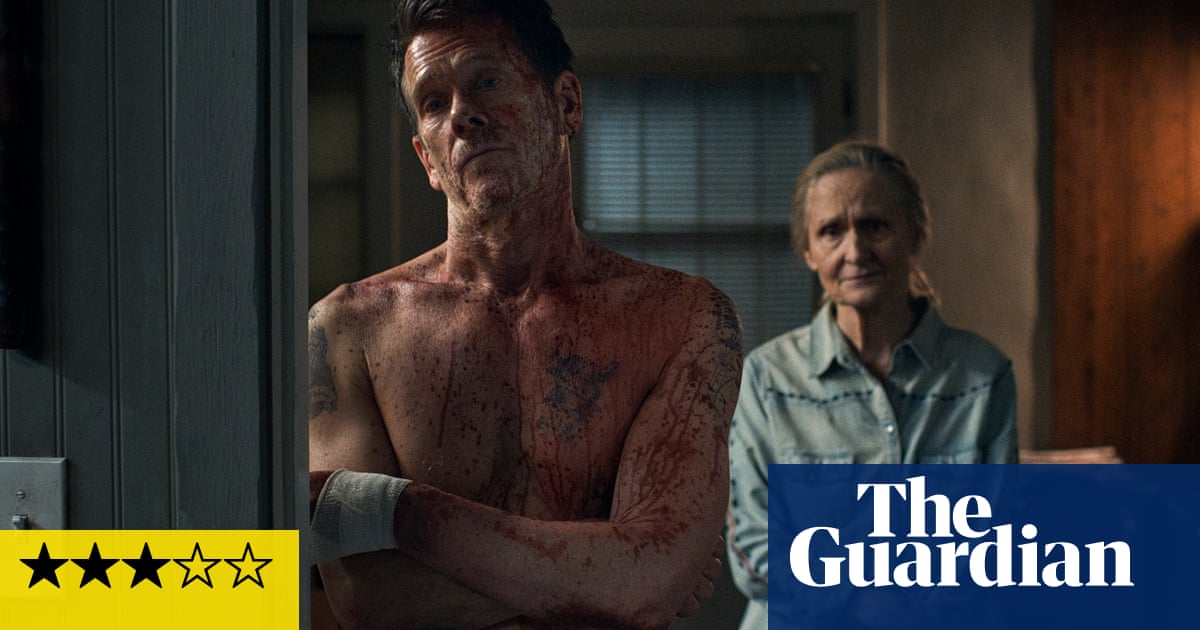“The Bondsman” features Kevin Bacon as Hub Halloran, a tracker of wrongdoers who, after being killed, is resurrected to combat demons in a small southern town. His task is to send these minions of a corporation representing Satan back to hell, or face eternal damnation. The series, filled with horror tropes like possession and comic relief, mixes supernatural elements with Hub’s personal life, including his rivalry with Lucky Callahan, the new boyfriend of his ex-wife. Additionally, Hub and Maryanne, once a successful country duo, grapple with their musical past. The show is available on Prime Video.
The Bondsman doesn’t offer much in terms of originality. Your enjoyment of it hinges on your appreciation for Kevin Bacon (think stoic, weathered Kevin Bacon, not the one from Tremors or Footloose), your interest in stories revolving around demonic possession in a small Southern town, and your tolerance for unsettling imagery like partially severed heads, ruptured tracheas, and bloodied fingers. Personally, I’m somewhat distanced from enjoying that last detail.
Nonetheless, Bacon embodies his role as Hub Halloran, a tracker of miscreants with warrants out for their arrest, even if it feels like he’s just shuffling through it. This slight detachment makes sense, considering that for most of the eight episodes, Hub is, quite literally, dead. He meets his end at the hands of local thugs hired by Lucky Callahan (Damon Herriman – you’ll recognize him when you see him), the new partner of Hub’s ex-wife Maryanne (Jennifer Nettles), who is looking to eliminate any competition.
However, the devil is lurking in Georgia, or at least several of his minions are, and Hub gets a second chance to round them up and send them back to hell. The Pot of Gold corporation serves as Satan’s representative here on Earth, while Midge (Jolene Purdy) acts as the company’s liaison. She informs Hub and his devoted mother Kitty (Beth Grant, who finally gets a bit more to do after a long career of similar roles) that this is his ticket out of hell. As long as Hub continues to vanquish demons, he remains on Earth. But if he fails to do so, it’s back to the fiery abyss for him. Kitty is puzzled, wondering what her son did to deserve such a fate. Hub is unclear on that front himself, but he assures her he is unaware of any wrongdoing. The viewer, too, is left questioning.
Did I mention there are posters all over town for a missing woman? No? Well, there are. Just thought I’d mention it. Totally relevant.
Hub’s status as a ghost allows him to identify the demons that are now disguised as residents of Landry town. He manages to dispatch at least one demon each episode, starting with a pastor whose crucifixes and holy water failed to offer the protection he sought.
As the story unfolds, expect levitating bodies, peeling faces, burning water, spontaneous combustion, and the demise of mean teens. All the classic elements of demonic lore are present, with light-hearted touches to ease the horrors (like Midge giving Hub a job manual from 1973, advising him to check online for updates instead). Eventually, Hub realizes there might be more to Midge’s seemingly straightforward directive of “Just get rid of these demons each week!” than he originally perceived (why are these demons flocking to Landry? Why are they taking the time to sacrifice victims instead of just hopping from one host to another?). Adding layers to the plot, Lucky continues to schemingly try to win Maryanne’s affections, attempting to push Hub out of what he still sees as his life. Moreover, Hub’s entire family, including his 15-year-old son Cade (Maxwell Jenkins), gradually becomes caught up in his mission to tidy up and avoid eternal damnation.
Additionally, there’s a subplot that could elicit genuine fear even from seasoned horror fans: once upon a time, Hub and Maryanne were a hit country music duo. And deep down, that longing to reclaim their former glory remains. Maryanne still performs at the local nightclub, The Boxcar, while Hub holds onto old videotapes of their prime. Yes, viewers may rightfully experience a sense of dread as the realization dawns that the reason Bacon, one half of the country-folk duo The Bacon Brothers, took this project might not solely be his fondness for Southern gothic tales inspired by Stephen King, but rather the opportunity to perform music and play guitar on stage. I can’t confirm that this is the case, but it does unfold in the story. While death may not seem appealing, the gap between it and the alternative diminishes. The rhythm of the beast is set at 4/4 time.
